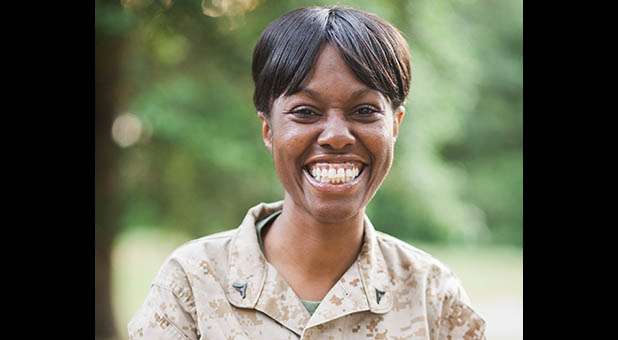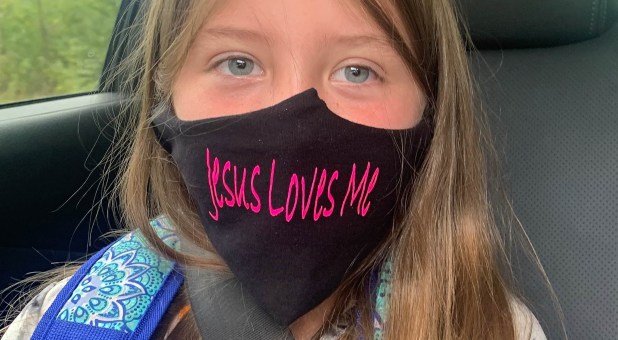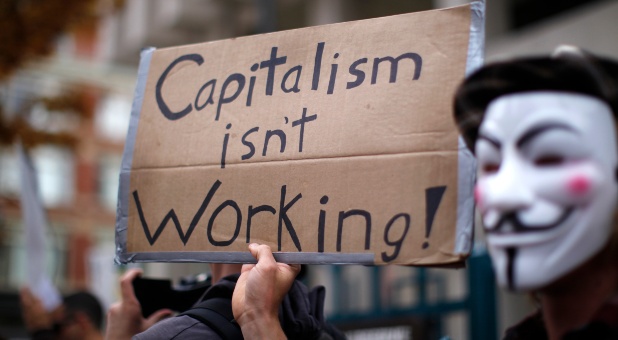Are the members of the U.S. military, who are charged with defending our rights and freedom enshrined in the Constitution, able to enjoy those same rights and freedoms while wearing the uniform and serving their country?
That’s the question former Marine Lance Cpl. Monifa Sterling and her attorneys affiliated with First Liberty Institute would like answered by the U.S. Supreme Court. But so far, as her case has worked its way through the military appellate court system, the answer has been a resounding no.
Sterling was court-martialed for refusing an order to remove a Bible verse she had posted in her workplace. Despite invoking the Religious Freedom Restoration Act (RFRA) as a defense, she was convicted. She appealed, and in April 2016, the U.S. Court of Appeals for the Armed Forces (CAAF), the nation’s highest military court, heard her case.
But, four months later, the CAAF issued an opinion upholding the conviction on the basis that the order to remove the Bible verse did not “substantially burden” Sterling’s religious exercise. The effect of the decision means that RFRA does not fully protect religious freedom for military members.
“The CAAF set a terrible and shameful precedent with its opinion, jeopardizing the religious rights of every single man and woman in military service,” First Liberty President and CEO Kelly Shackelford said. “We are asking the Supreme Court to hear this historic case and protect the constitutional rights of all of our service members.”
First Liberty Institute and nationally renowned litigator Paul Clement—who represented Sterling before the CAAF in April—have petitioned the Supreme Court to accept her case. In their brief, the attorneys argue the Religious Freedom Restoration Act applies to both members of the military and the American public.
“This case is historic because very few cases come before the Supreme Court that affect the military, while even fewer cases come up that involve military religious freedom,” First Liberty Director of Legal Communications Kassie Dulin said. “Not only that, but the outcome of this case will affect not only the military, but all Americans who want to see their religious practice protected under the Religious Freedom Restoration Act.”
Various federal courts of appeals have considered this question and arrived at two different conclusions, creating a “circuit split.” RFRA states that the government cannot substantially burden a person’s free exercise of religion unless the government:
- has a compelling interest in burdening the person’s religious exercise, and
- it burdens the religious exercise in the least restrictive way possible.
The question addressed in Sterling v. United States is how the courts should define a “substantial burden.”
The Minority Opinion
A minority of federal courts, including the CAAF, say that the government is “substantially burdening” a person’s religion only if it forces the person to choose between fulfilling a government demand and obeying a requirement of their religion. For example, if the government said a Catholic could not take communion, it would create a substantial burden on the person’s religious exercise because it would force the person to choose between fulfilling a requirement of their religion (taking communion) and obeying the government (by not taking communion).
All federal courts agree that, in this scenario, the government has substantially burdened religious exercise. But according to the CAAF’s interpretation of RFRA, the government is not substantially burdening a person’s religious exercise if it prohibits an act that is religiously motivated but not required by their religion.
The Majority Opinion
A majority of federal courts agree the government is substantially burdening a person’s First Amendment right to free exercise if it restricts any religiously motivated behavior, regardless of whether the behavior is required by a religion or not. But, under the CAAF’s view, the government should be given the authority to decide what religious acts are or are not required by religious tenets and doctrine.
First Liberty contends that the government should not be involved in determining what is and isn’t required by specific faiths. Instead, the government should agree that limiting any religiously motivated act constitutes a substantial burden, regardless of whether or not those acts are required by a particular religion.
Otherwise, the government risks limiting the religious liberties of all Americans, including the nearly two million men and women who defend religious freedom in uniform.
“Our service members give up many freedoms to serve, but religious freedom is never one of them,” First Liberty Director of Military Affairs Mike Berry said. “Their right to free religious expression should be protected. We’re asking the Supreme Court to uphold that right.”
If the Supreme Court agrees with First Liberty’s stance on the substantial-burden question, the government may still be able to limit religious activity under RFRA if it has a compelling governmental interest. It’s a position that simply ensures people of faith are granted full due process under RFRA but does not guarantee the outcome of religious freedom cases.
“This important case warrants the Supreme Court’s attention in order to ensure that our service members get the same protection for their religious liberty as civilians in the majority of circuits,” Clement, a former Solicitor General of the United States, said. {eoa}
See an error in this article?
To contact us or to submit an article





















